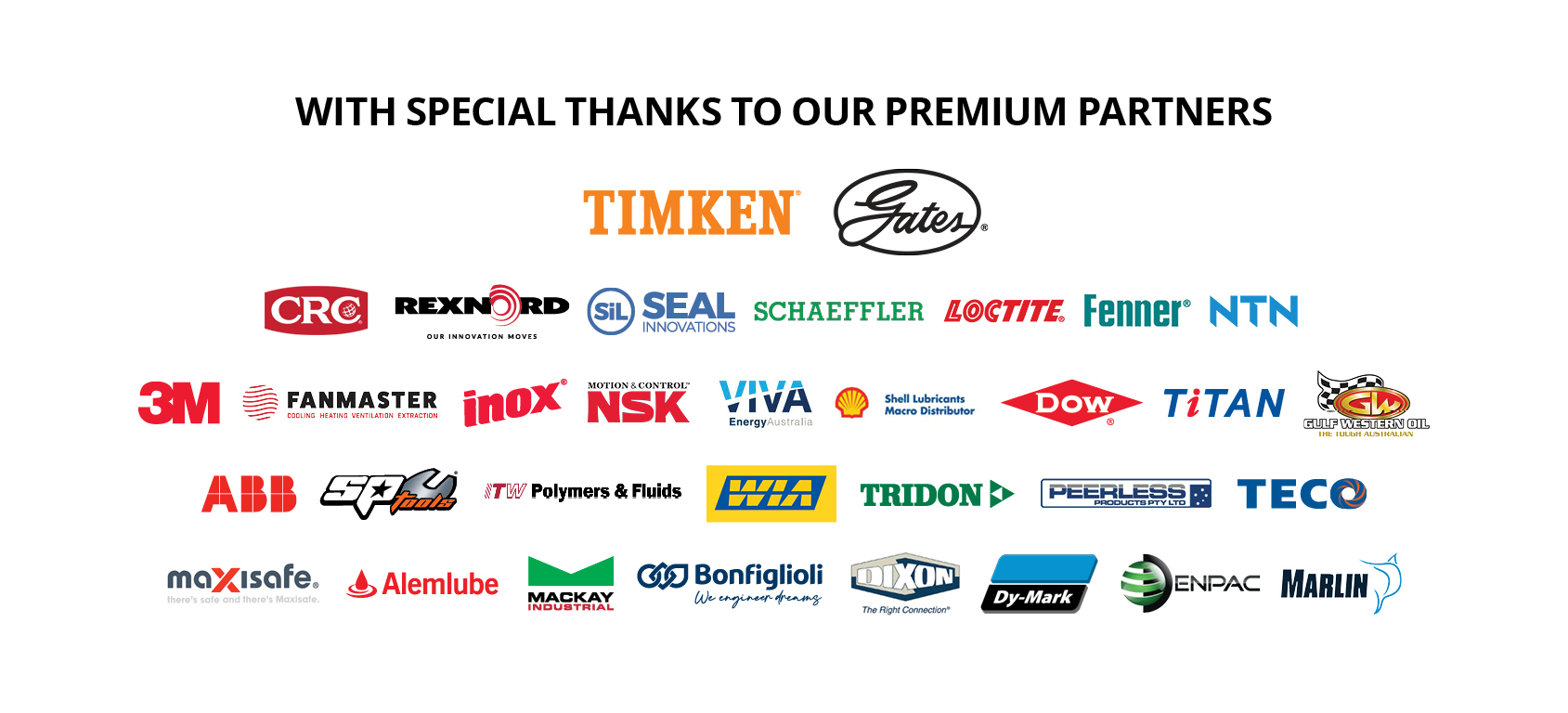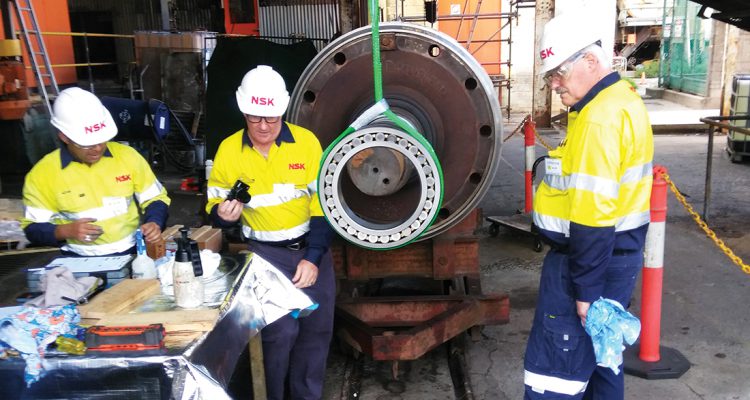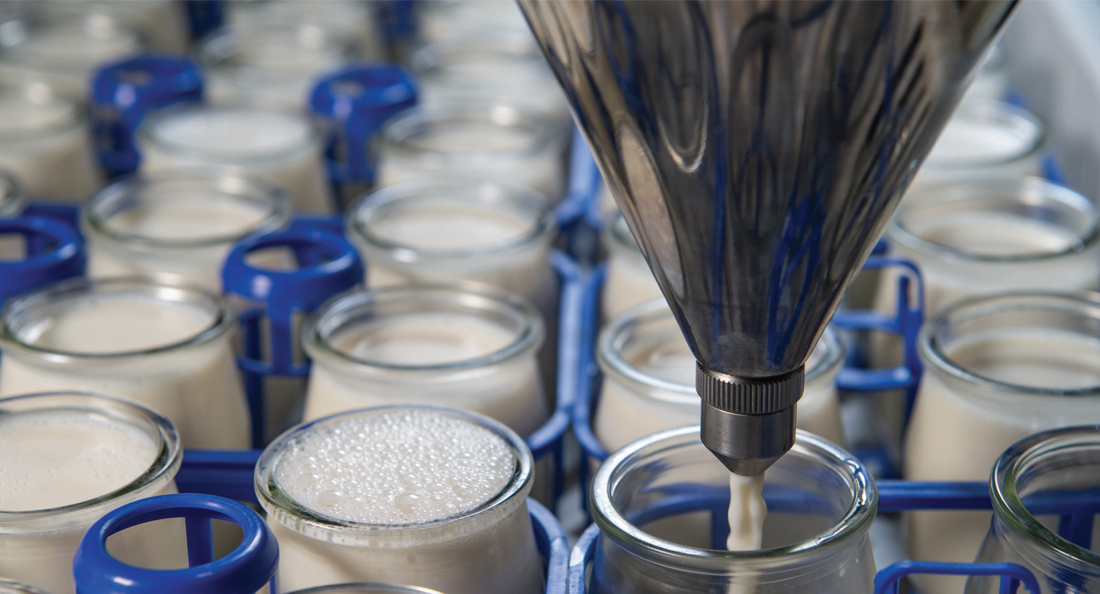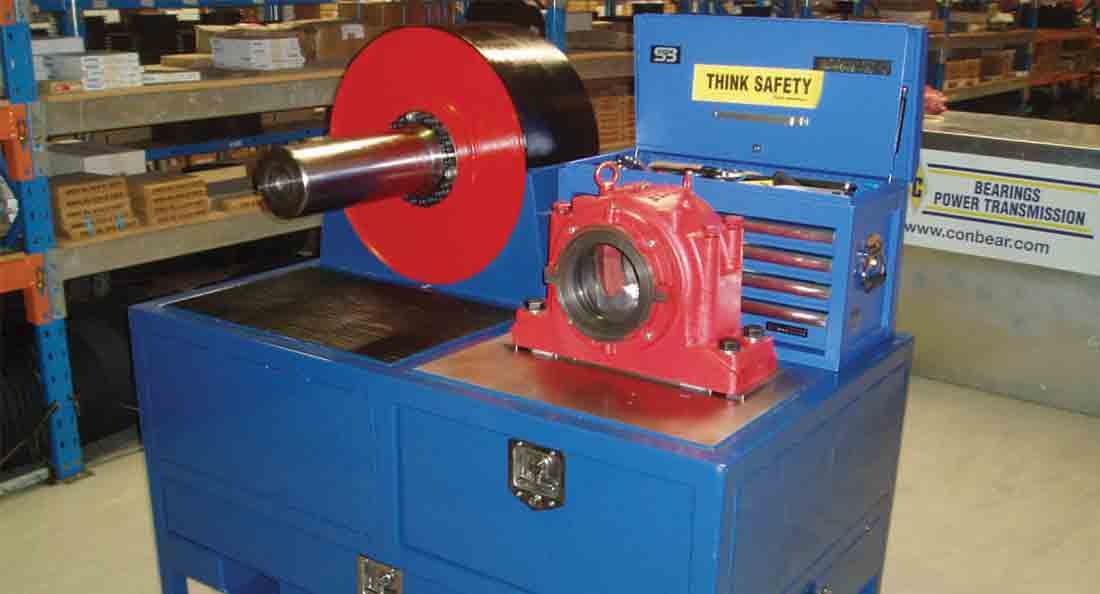All sugar cane that passes through a sugar mill must pass through a shredder, which reduces the cane to a fibrous mass before it passes on to further crushing and refining processes required for the production of sugar.
Shredders run at high speeds, approximately 1000 rpm, churning through heavy loads of cane throughout the mill crushing season. This arduous process requires shredder components that can withstand high strain.
As the shredding process occurs very early in the production of sugar, it is critical that shredders are maintained in working condition. If a shredder fails, mill production comes to a halt. Choosing the right parts and keeping them well-maintained is therefore essential in minimising costly downtime.
The spherical roller bearings are a critical component in the operation of a cane shredder. When bearings are fitted to the shaft of the shredder, they fit on a taper which locks the ring of the bearing on to the shaft so that it cannot move. Forcing the ring upon the taper elastically stretches it. Under the heavy loads, high speed, and high temperatures of the shredding process, the ring of a bearing can become cracked and fracture, causing the shredder to seize up.
BSC and NSK engineering teams carry out regular installation and maintenance of bearings for sugar cane shredders at mills across Queensland and northern NSW. According to Anthony Richards, reliability engineering manager at BSC, installing the right spherical roller bearing can make all the difference in maintaining shredder operability throughout the crushing season.
“NSK’s TL Series is the go-to for this kind of application. They are extremely durable and have a long operation life,” Richards said.
A special surface hardening thermal treatment is applied to the inner rings of the TL Series bearings, making them highly resistant to ring fracture and cracking under the straining conditions of the cane shredder.
Because the TL Series bearings have harder surfaces than standard bearings, their wear resistance is higher, enabling them to last longer in arduous conditions. While standard bearings usually last for two seasons of mill shredding, the TL Series can last up to four.
To get the most out of these bearings, it is important that they are installed properly and regularly monitored.
“Because shredders are such a critical piece of equipment, it is extremely important that the bearings are fitted correctly to get the best life out of the product,” said Richards.
First, BSC and NSK engineers visually inspect and measure the internal clearance of the new bearing and inspect the shredder shaft for defects. Bearing Blue is then applied to the shaft to check on the contact area of the bearing tapered bore on the tapered shaft. The bearing bore and shaft are cleaned before the bearing is mounted. Hydraulic oil under pressure is fed to the bore of the shaft through to the inner ring to assist in axial drive up. A dial indicator is then mounted on the shaft to monitor axial movement and feeler gauges measurements are carried out to establish the final clearance setting of the bearing. Using feeler gauges, the gap between the seal shoulder and the bearing’s inner ring is measured in order to match the required shim thickness. The bearing is then dismounted, the shim with the required thickness is put in place and the bearing is remounted. Finally clearance measurements are taken again to confirm that the fit is correct.
“Our engineering services teams at BSC have expert product knowledge and experience in installing and maintaining these bearings,” Richards said. “Three times a year we will do vibration testing to monitor their condition, and we will often do yearly inspections.”
With local branches located across NSW and Queensland, BSC is able to respond quickly to customers requiring new products or maintenance services.
“If a customer rings up and needs assistance, we are available and ready 24/7. The TL Series is quite a specialised bearing and it is stocked and readily available at our branches, so if a client needs the product, we can deliver it quickly,” said Richards.
“Whether it be remotely assisting with technical information and advice over the phone, or actually going onsite to carry out or assist installations or checking and replacing equipment – when our customers need us, we are always ready to help.”



